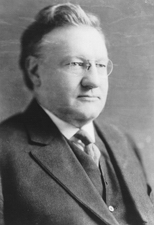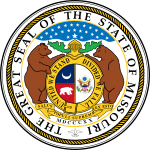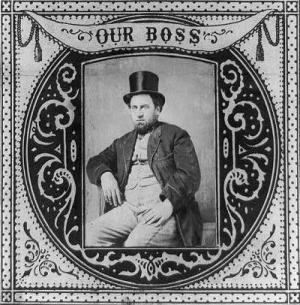
Scott Wike Lucas was an American attorney and politician. A member of the Democratic Party, he represented Illinois in the U.S. House of Representatives (1935–1939) and the U.S. Senate (1939–1951). He was the Senate Majority Leader from 1948 to 1950.

The 1982 United States Senate elections were held on November 2, 1982. They were elections for the United States Senate following Republican gains in 1980. A total of four seats changed hands between parties, and the lone independent, Senator Harry Byrd Jr., retired. Democrats made a net gain of one seat in the elections. A special election in 1983 was then held after the winner of Washington's 1982 election died at the beginning of the term.

The 1978 United States Senate elections in the middle of Democratic President Jimmy Carter's term. Thirteen seats changed hands between parties. The Democrats at first lost a net of two seats to the Republicans, and then one more in a special election. Democrats nevertheless retained a 58-41 majority.

The 1976 United States Senate elections was an election for the United States Senate that coincided with Democratic Jimmy Carter's presidential election and the United States Bicentennial celebration. Although almost half of the seats decided in this election changed parties, Carter's narrow victory did not provide coattails for the Democrats, and the balance of the chamber remained the same.

The 1950 United States Senate elections occurred in the middle of Harry S. Truman's second term as President. As with most 20th-century second-term mid-terms, the party out of the Presidency made significant gains. The Republican opposition made a net gain of five seats, taking advantage of the Democratic administration's declining popularity during the Cold War and the aftermath of the Recession of 1949. The Democrats held a narrow 49 to 47 seat majority after the election. This became the first time since 1932 that the Senate Majority Leader lost his seat and the only instance where the majority leader lost his seat while his party retained the majority.

The 1948 United States Senate elections were elections which coincided with the election of Democratic President Harry S. Truman for a full term. Truman had campaigned against an "obstructionist" Congress that had blocked many of his initiatives, and in addition the U.S. economy recovered from the postwar recession of 1946–47 by election day. Thus Truman was rewarded with a Democratic gain of nine seats in the Senate, enough to give them control of the chamber.

The 1946 United States Senate elections were held November 5, 1946, in the middle of Democratic President Harry S. Truman's first term.

The United States Senate elections of 1940 coincided with the election of Franklin D. Roosevelt to his third term as President.

The United States Senate elections of 1934 occurred in the middle of Democratic President Franklin D. Roosevelt's first term. In the middle of the Great Depression, voters strongly backed Roosevelt's New Deal and his allies in the Senate. The Democrats picked up a net of nine seats, giving them a supermajority. President Harry S. Truman was first elected to the U.S. Senate in the 1934 election. Truman would serve over a decade in the U.S. Senate, before becoming President Roosevelt's third Vice President, before succeeding to the presidency upon the death of President Roosevelt.

The United States Senate elections of 1930 occurred in the middle of Republican President Herbert Hoover's term. With the Great Depression beginning to take hold, Republican incumbents became unpopular, and Democrats picked up a net of eight seats, erasing the Republican gains from the previous election cycle. Republicans retained control of the U.S. Senate since Vice President Charles Curtis cast the tie-breaking vote. This was the first of four consecutive Senate elections in the Depression in which Democrats made enormous gains, achieving a cumulative pick-up of 34 seats.
Maurice Morton Milligan, a U.S. Attorney for the Western District of Missouri, is most famous for the successful 1939 prosecution of Kansas City boss Tom Pendergast.
Manvel Humphrey Davis was a member of the Missouri House of Representatives and Missouri State Senate. Davis, a Republican, challenged Harry S. Truman in the United States Senate elections, 1940 for re-election after the collapse of the big city machine of Truman’s patron Tom Pendergast.

The 1948 United States elections was held on November 2, 1948. The election took place during the beginning stages of the Cold War. Democratic incumbent President Harry S. Truman was elected to a full term, defeating Republican nominee New York Governor Thomas E. Dewey and two erstwhile Democrats. The Republicans, who had just won both the House and the Senate two years earlier, ceded control of both chambers of Congress to the Democrats. Puerto Rico also elected Luis Muñoz Marín of the Popular Democratic Party as its first democratically elected governor.

Electoral history of Harry S. Truman, 33rd President of the United States (1945–1953), 34th Vice President of the United States (1945) and United States Senator from Missouri (1935–1945)

The 1952 United States elections was held on November 4. The Republicans took control of the presidency and both chambers of Congress for the first time since the Great Depression. The election took place during the Korean War.

The 1940 United States Senate election in Missouri was held on November 5, 1940. Incumbent Democratic U.S. Senator and future President of the United States Harry S. Truman, who was first elected in 1934, decided to seek re-election to a second term. He narrowly defeated Republican nominee Manvel H. Davis.
























